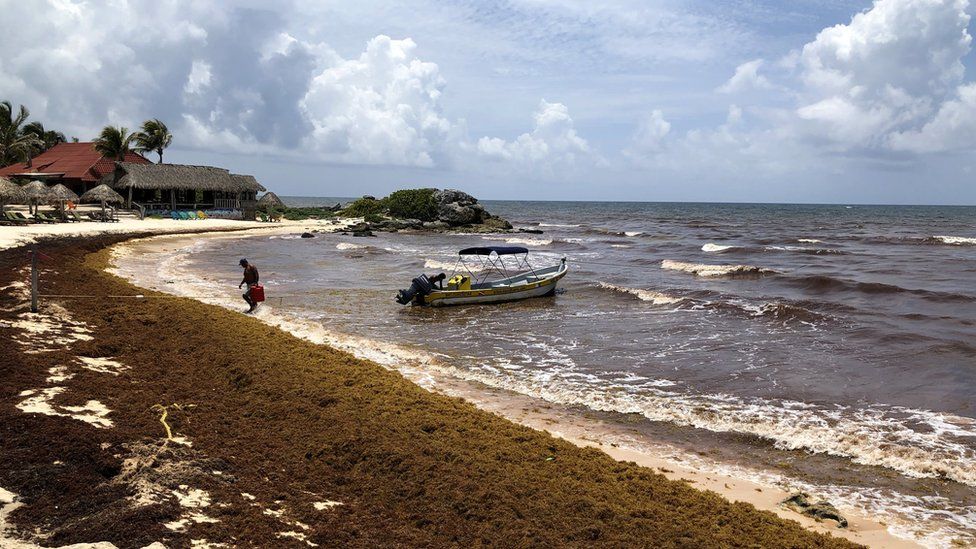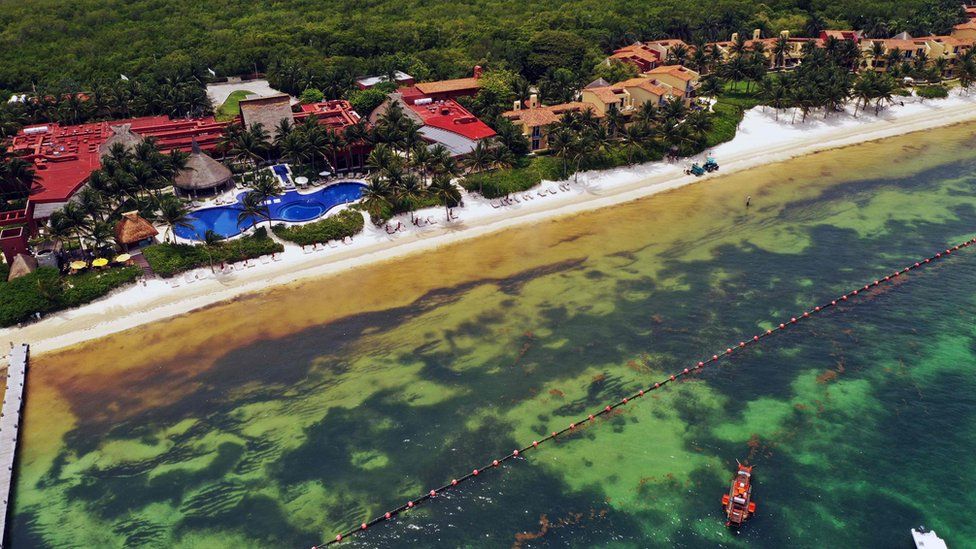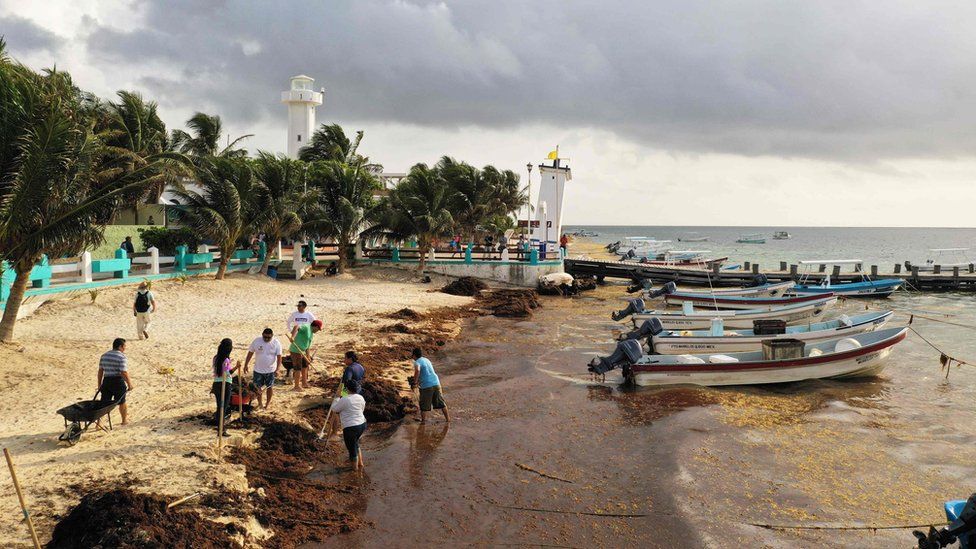An infestation of a seaweed-like algae along some of Mexico’s most visited Caribbean beaches has pitted the local community against the president, who has described the problem as a “minor issue”.




In recent years, hotels have placed nets to try to keep the sargassum in the water, away from the beaches, while workers and volunteers clean up the shore with shovels and barrows, collecting up to one tonne every day, according to the local government.
But removal is time-consuming and expensive and, for many, ineffective.
Some 1,000km (621 miles) of Mexican beaches have been impacted this year, including Cancún, Playa del Carmen and Tulum in Quintana Roo state, local officials say.



President Andrés Manuel López Obrador irritated many when, while in Cancún on Monday, he said the seaweed was a “minor issue” and that he was not worried about it causing major damage to the tourist-dependent economies. Prior to his visit, residents wrote a letter complaining that
authorities had not acknowledged the real scale of this “serious situation”.
“Most months of the year our beaches have lost the crystalline colour of their waters and their shades of blue and turquoise green; sea grass and fish die because of the lack of light and oxygen, the turtles and the coral reef are also affected,” they said, according to Turquesa News website (in
Spanish).
“It produces an acid gas with a rotten egg smell [when it decomposes] that can be harmful to human health.”



Despite downplaying the issue – which is likely to affect the region’s tourism – Mr Obrador said the government was working to address the issue and pledged “all the resources that are needed”.
Rafael Ojeda, head of the Mexican Navy, said authorities would spend $2.7m (£2.1m) to build four boats designed to remove seaweed as well as new barriers to retain it.



